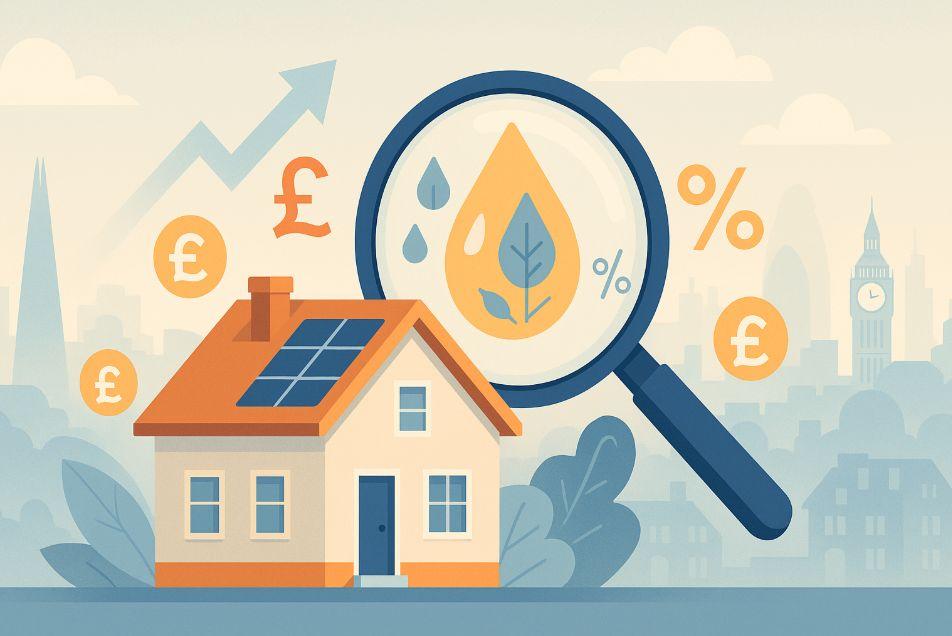As 2025 unfolds, the UK housing and mortgage markets continue to evolve in response to fluctuating economic indicators. From inflation adjustments to central bank interventions, British homebuyers and investors are all asking the same question:
Are mortgage rates going down in the UK? This article explores the latest data, expert forecasts, and what it means for both existing and future homeowners in the London market and beyond.
What Is the Current State of Mortgage Rates in the UK?

Mortgage rates in the UK have seen significant volatility over the past year, particularly in response to interest rate hikes initiated by the Bank of England. In early 2024, rates peaked above 6% for many fixed-term deals, reflecting the country’s battle against soaring inflation.
As of September 2025, mortgage rates have begun to ease slightly, with many lenders offering 5-year fixed-rate deals between 4.5% and 5.2%, depending on loan-to-value ratios and borrower profiles. Variable rates are following a similar trend, though remain more susceptible to sudden changes in the base rate.
Why Are Mortgage Rates Changing in 2025?
Several interlinked factors are behind the recent shifts in UK mortgage rates. Primarily, the Bank of England’s monetary policy continues to steer lender decisions. With inflation showing signs of stabilising currently around 3.2%, down from over 10% in 2023 the BoE has adopted a more cautious stance.
Global economic pressures, including ongoing energy market shifts and geopolitical uncertainty, also feed into UK lending conditions. Moreover, the domestic property market has cooled slightly, with housing price growth slowing across London and other regions, putting less pressure on lenders to raise rates further.
Are Mortgage Rates in the UK Actually Going Down Right Now?
The simple answer is yes, but modestly and cautiously. Data from major lenders such as Halifax, Barclays, and Nationwide confirms that some fixed-rate products have been reduced by 0.25% to 0.5% over the past three months. This trend is attributed to improved inflation forecasts and a belief that the BoE may begin cutting its base rate by mid-2026 if current trends hold.
That said, rates are not dropping significantly. They’re stabilising a sign that the UK mortgage market is entering a more predictable phase, even if rates remain higher than pre-pandemic levels.
How Does the BoE Base Rate Impact Mortgage Rates?

The Bank of England base rate, currently held at 5.25%, is the primary benchmark for mortgage lending. Whenever this rate changes, it directly affects tracker mortgages and indirectly impacts fixed deals.
Lenders base their pricing not only on the current base rate but also on expectations about future changes. This is why some mortgage rates have started to fall even though the base rate hasn’t been cut yet it’s all about forward-looking market sentiment.
Are Fixed-Rate or Variable Mortgages Affected Differently?
Fixed-rate mortgage holders are insulated from immediate base rate changes, locking in their interest rate for 2, 5, or even 10 years. Variable-rate and tracker mortgages, however, are far more sensitive. As the BoE’s outlook softens, lenders are offering more competitive fixed-rate deals, reflecting optimism that rates won’t rise further.
Borrowers coming to the end of their fixed terms in 2025 are now faced with slightly more favourable remortgaging options compared to 2024, though still well above the ultra-low rates of the early 2020s.
What Do Experts Predict for UK Mortgage Rates in 2025 and Beyond?
Economists and housing experts are cautiously optimistic. The majority agree that mortgage rates in the UK will continue to decline slowly over the next 12–18 months, assuming inflation continues to fall and economic growth remains steady.
Lloyds Banking Group predicts a base rate cut by Q2 2026, which could bring average mortgage rates down by another 0.5% to 1%. However, this is contingent on domestic inflation, wage growth, and political stability, particularly with a General Election on the horizon.
Should London Buyers Wait or Act Now on Mortgages?

This is one of the most challenging decisions for London-based buyers in 2025. While waiting could yield slightly better rates in a year or two, it also carries the risk of missing out on affordable properties or encountering higher house prices if demand rebounds.
For many, securing a competitive 5-year fixed deal around 4.8% now might offer more financial certainty than hoping for a half-point drop later especially if property prices begin climbing again.
How Can Homebuyers Find the Best Mortgage Deals in the UK?
While mortgage comparison tools remain helpful, many buyers are turning to independent mortgage advisers to navigate the complex lending environment in 2025. Advisors have access to exclusive lender deals and can help borrowers match the right mortgage product with their financial goals.
Government-backed schemes for first-time buyers and green home incentives can also help reduce upfront costs or secure more favourable terms.
What Are the Alternatives If Mortgage Rates Remain High?
Should rates plateau or decline more slowly than expected, buyers have several strategic options:
- Consider longer mortgage terms, such as 35- or 40-year options, to reduce monthly payments
- Explore interest-only mortgages for short-term affordability, especially for buy-to-let
- Re-evaluate whether renting might be more cost-effective in the short term
- Use offset mortgages to leverage savings against interest calculations
Each option comes with its own risks and benefits, so speaking with a qualified adviser is essential.
Mortgage Rate Comparison Table – 2024 vs 2025
| Mortgage Type | Avg. Rate (2024) | Avg. Rate (2025) | Trend |
| 2-Year Fixed | 6.10% | 5.05% | Decreasing |
| 5-Year Fixed | 5.85% | 4.80% | Decreasing |
| Variable Tracker | 5.50% | 5.20% | Slight Decrease |
| Interest-Only Deals | 6.00% | 5.50% | Decreasing |
Conclusion
Mortgage rates in the UK are indeed showing signs of decline but the shift is cautious rather than dramatic. With inflation cooling and the Bank of England holding firm, the market is breathing easier in 2025. While rates remain higher than in the ultra-low interest era, the worst appears to be over.
For buyers and homeowners in London and beyond, now is a time for careful financial planning rather than rushing in or holding out indefinitely. The outlook for mortgage rates is becoming clearer, but the market rewards those who act with both strategy and confidence.
FAQs
What is the current average mortgage rate in the UK?
As of September 2025, the average 5-year fixed mortgage rate in the UK is between 4.8% and 5.2%, depending on lender and loan type.
Will the Bank of England cut interest rates soon?
Most economists expect the BoE to begin cutting interest rates in mid-to-late 2026, depending on inflation trends and economic growth.
Are mortgage rates cheaper in London than elsewhere?
Mortgage rates across the UK are broadly similar, but property prices in London may impact loan-to-value ratios, affecting deals.
Should I fix my mortgage now or wait?
Fixing now offers certainty, especially if you find a deal below 5%. Waiting may save money, but only if rates fall significantly.
Can first-time buyers get better rates?
Some lenders offer special deals or lower deposit requirements for first-time buyers, often supported by government schemes.
How do I remortgage in 2025?
You can remortgage by applying through your current lender or a new one. A mortgage broker can help find better deals.
What factors affect mortgage rates the most?
The BoE base rate, inflation, housing demand, and global economic trends all impact UK mortgage interest rates.









Leave feedback about this